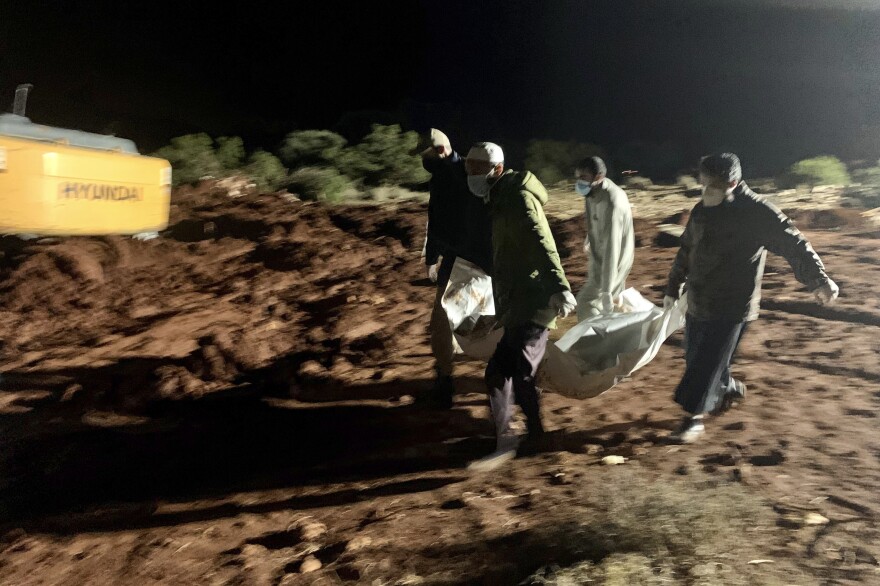Loading...
ROME — Local authorities say at least 5,100 deaths have been recorded in Derna amid the wreckage of the storm and floods that have hit this Mediterranean coastal city and other Libyan towns.
Experts say a quarter of Derna city is destroyed. Residents say at least one dam failed, sending a torrent of water through the city where the river meets the coast and submerging entire neighborhoods.
Loading...
Residents — many of whom lost their homes — are searching for the bodies of loved ones, some of whom were washed out to sea.
Video footage from the area shows dozens of corpses lined up in the yard of a hospital and corpses in white shrouds buried in a mass grave. Authorities expect the 5,100 death toll to rise, the Associated Press reports.
Among the dead are at least 84 Egyptians, according to Libya's Health Ministry and Egyptian media.

Rescue efforts have been complicated by the fact that Libya is divided between rival governments and the country is already shattered by more than a decade of conflict. The factional fighting has led to neglect of infrastructure and caused widespread poverty.
Experts say the dams hadn't been maintained for years. Meteorologists say this storm was also particularly intense, and was in keeping with a pattern of more extreme weather caused by human-induced climate change.
NPR's Aya Batrawy contributed to this report from Dubai.
Copyright 2023 NPR. To see more, visit https://www.npr.org.




